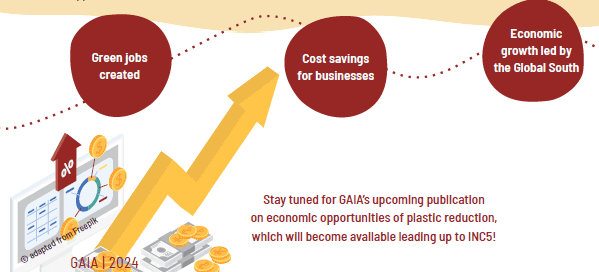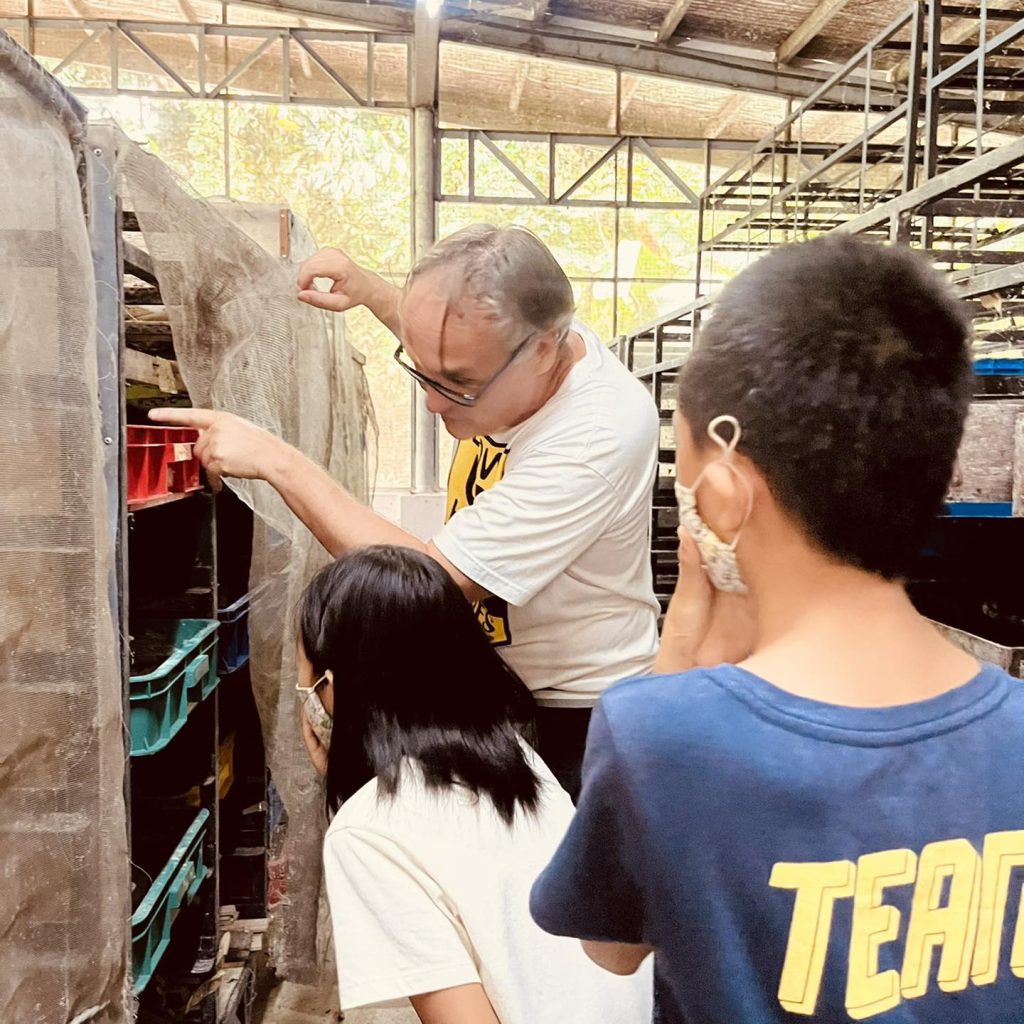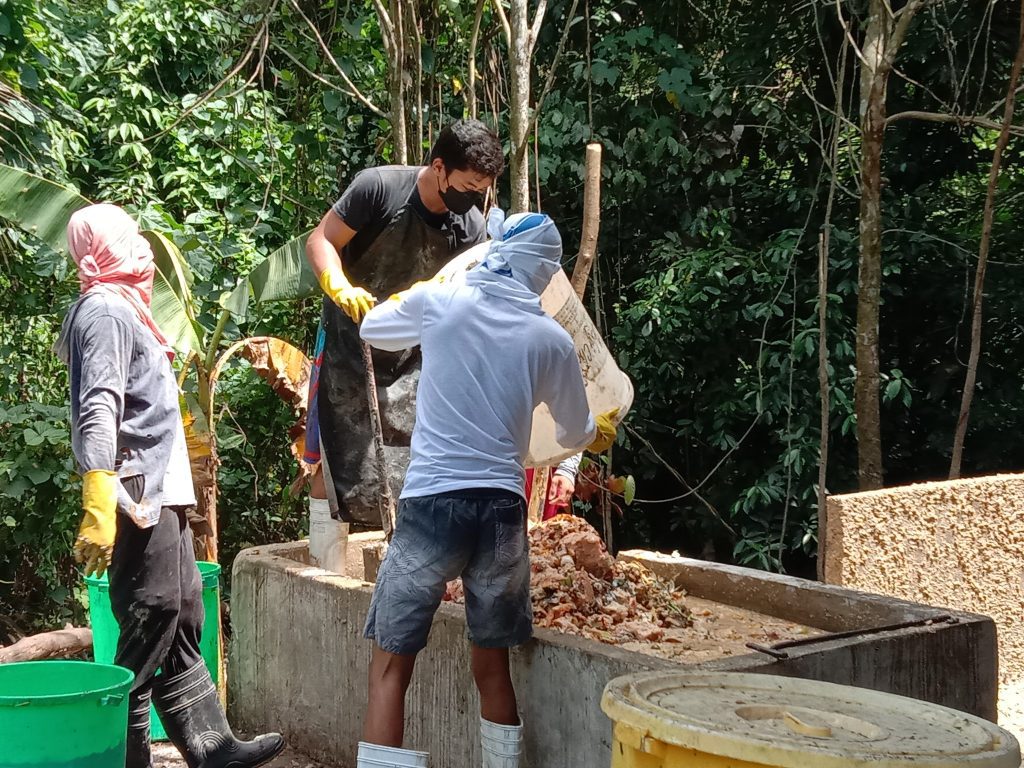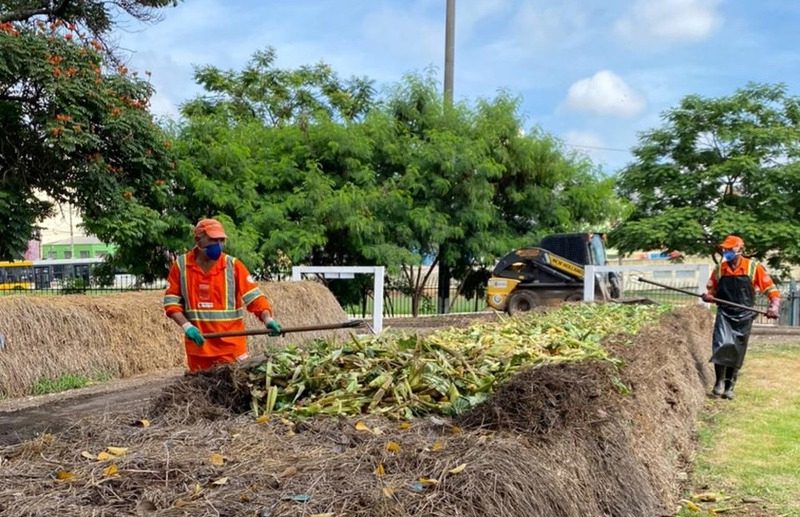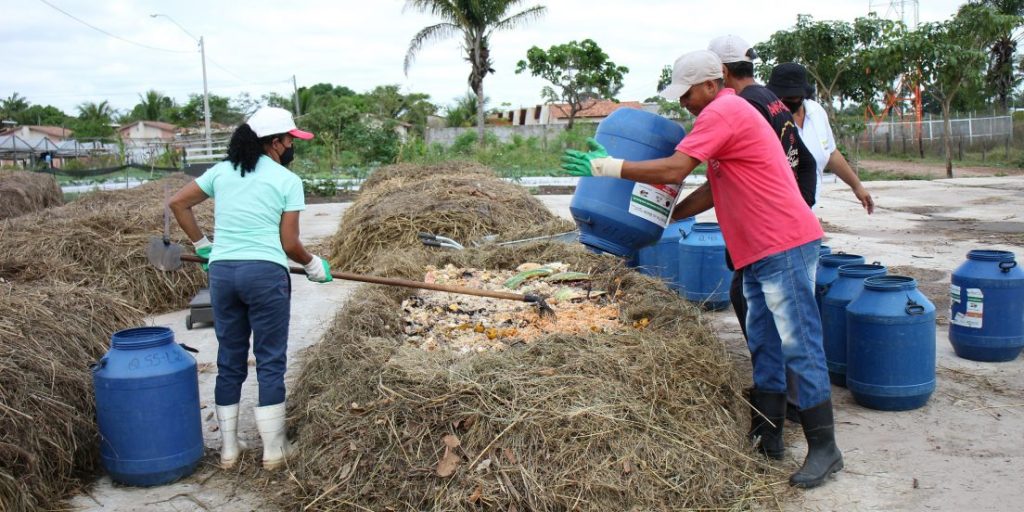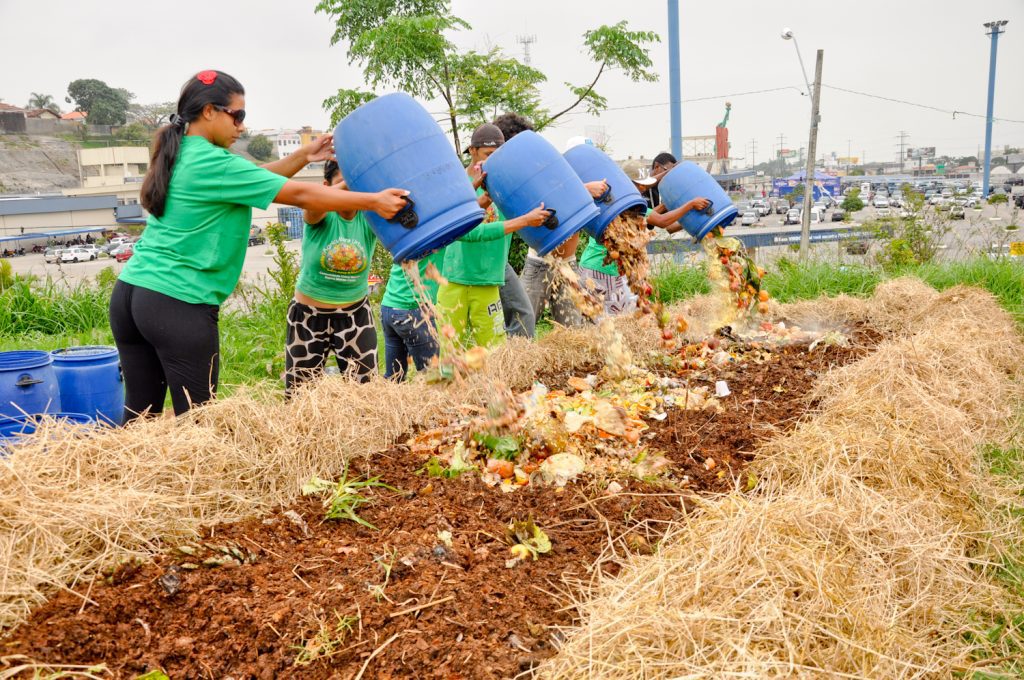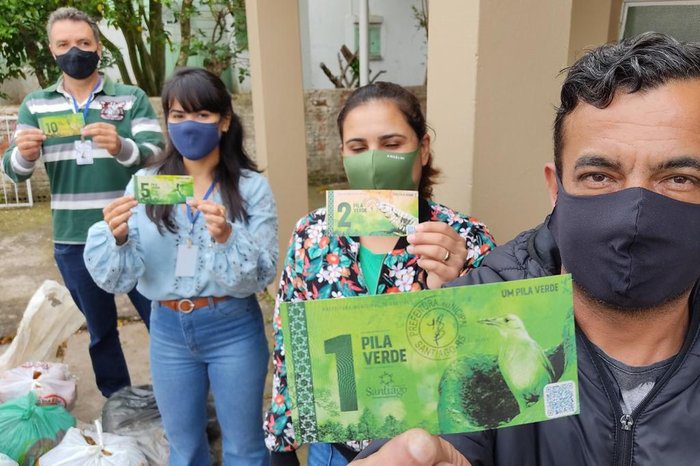Contributed by Movimento Nacional de Catadores de Materiais Recicláveis (MNCR)
The fight for environmental justice is strong in Brazil, and a powerful example is the social movement MNCR (Movimento Nacional de Catadores de Materiais Recicláveis or the National Movement of Waste Pickers), which has been organizing recyclable material collectors throughout Brazil for roughly 20 years. They seek to uplift waste pickers as important members of society, and fight for recognition, inclusion and appreciation of the work that they do.
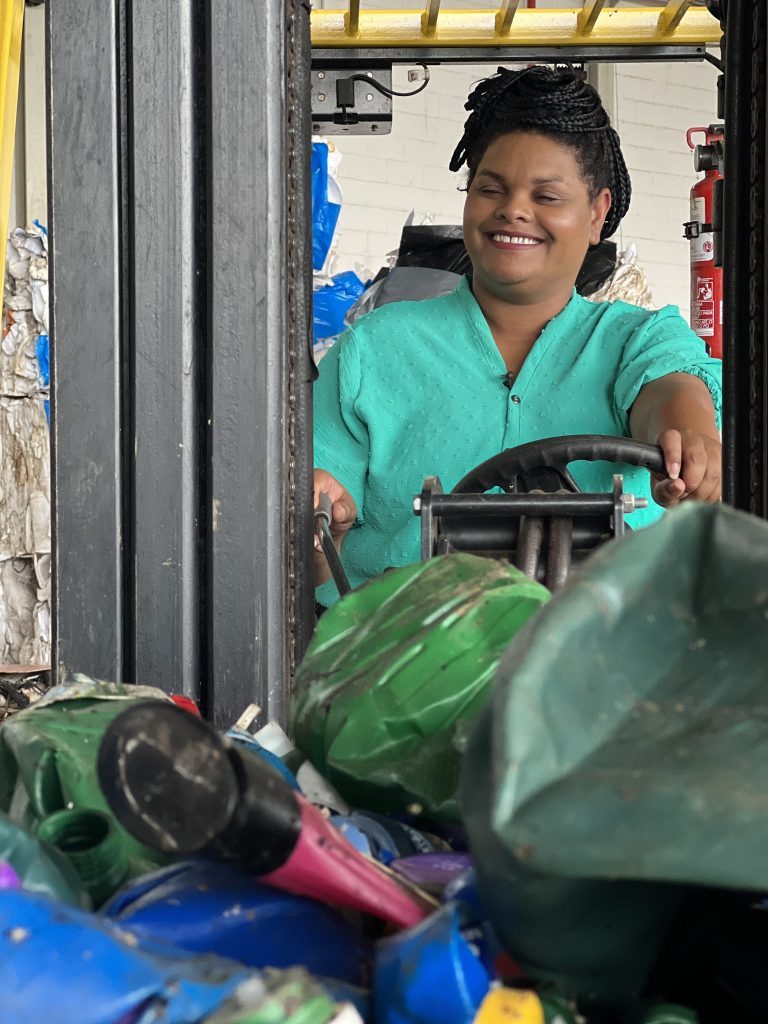
Aline Sousa, CENTCOOP
For two decades, MNCR has played a crucial role in organizing waste pickers across the country. Their main platforms are advocating for independence and solidarity for the oppressed class, fighting against incineration and privatization of waste, minimizing environmental impacts, and building popular power to sustain the planet.
Currently, it is estimated that there are between 800 thousand and 1 million waste pickers in Brazil. Around 1664 municipalities throughout the country have adopted separate collection, where waste pickers are responsible for 30% of the total mass collected. Also, 42% of these municipalities exclusively rely on waste pickers to carry out this activity. These professionals clearly play an essential role in waste management in Brazil.
One of the most prominent heroes of the movement is Aline Souza, who is currently serving her third term as President and Director of the Central das Cooperativas de Trabalho de Catadores de Materiais Recicláveis do Distrito Federal – CENTCOOP, and is a state representative of the National Movement of Waste Pickers of Federal District (MNCR-DF) and the National Secretariat for Women and Youth of Unicatadores.
The verb to rebuild and preserve has been part of Aline’s life since she was a child. At the age of 14, she started helping her grandmother with her recycling work, and since then she has worked in the sector, making recycling a way to transform her life and the lives of the people who work with her. She is part of the third generation of waste pickers in her family and is the mother of seven children. As a teenager, she dreamed of studying law. During the pandemic, she managed to get a 90% scholarship to study law, but today she has stopped her studies due to personal and professional demands.
Her grassroots organization is called CENTCOOP, made up of 23 waste picker cooperatives. The CENTCOOP advocates for the social recognition of waste pickers, strengthens environmental education on recycling and the shared solid waste management, and contributes to the development of waste picker-led collection systems.

In 2023, CENTCOOP launched CREAR/DF – Centro de Referência em Educação Ambiental do Distrito Federal (Reference Center for Environmental Education in the Federal District), to educate the public on waste separation, engaging civil society, the private sector, public authorities and waste picker cooperatives to increase the quality of the solid waste that arrives at the cooperatives. Approximately 60% of the waste that the cooperatives in the Federal District currently receive is contaminated, and becomes refuse. Therefore educating and informing the population is key to improving segregated collection and municipal solid waste (MSW) management for a circular economy.
Proper waste management is not only an essential municipal service, but a lynchpin for the climate. Today, Brazil collects 65.6 million tons of MSW yearly. Although 45.6%of waste collected is organic, only 0.4% is composted. Currently, only 2% is diverted from disposal: landfills receive 71.6% of the total waste collected and dumps 26.4%. The country emits 5.5% of global methane emissions, with the waste sector accounting for 16%, placing organic waste disposal as the second largest source of methane emissions in Brazil.
With this in mind, CENTCOOP has been developing a project to divert organic waste from the landfill in order to mitigate emissions from this sector, through the creation of a composting plant and a organic waste separate collection scheme, supported by the Pólis Institute and the Global Methane Hub (GMH).
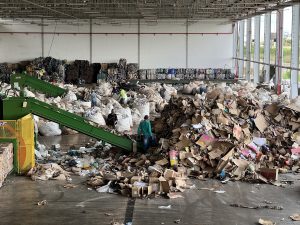

Today, composting systems operated by waste pickers generate three to five times more jobs than landfills, highlighting the potential for expanding these operations. Composting not only has a positive impact on the local economy, but also recognizes organic solid waste as an economic asset with social value. This generates work and income and promotes citizenship, as advocated by the National Solid Waste Policy (PNRS).
In addition to valuing the main players in the MSW management system and the most vulnerable population, the new MSW management models– which include waste picker-led composting operations– are part of a just transition and have a positive impact on the economy. The role of waste pickers is fundamental, not only as a legal priority in MSW management, but as drivers of social technologies that increase recycling and boost local development. The Environmental justice principles demonstrated by MNCR provide dignity and job creation for marginalized groups, while reducing methane emissions from the waste sector and promoting a circular economy.

























